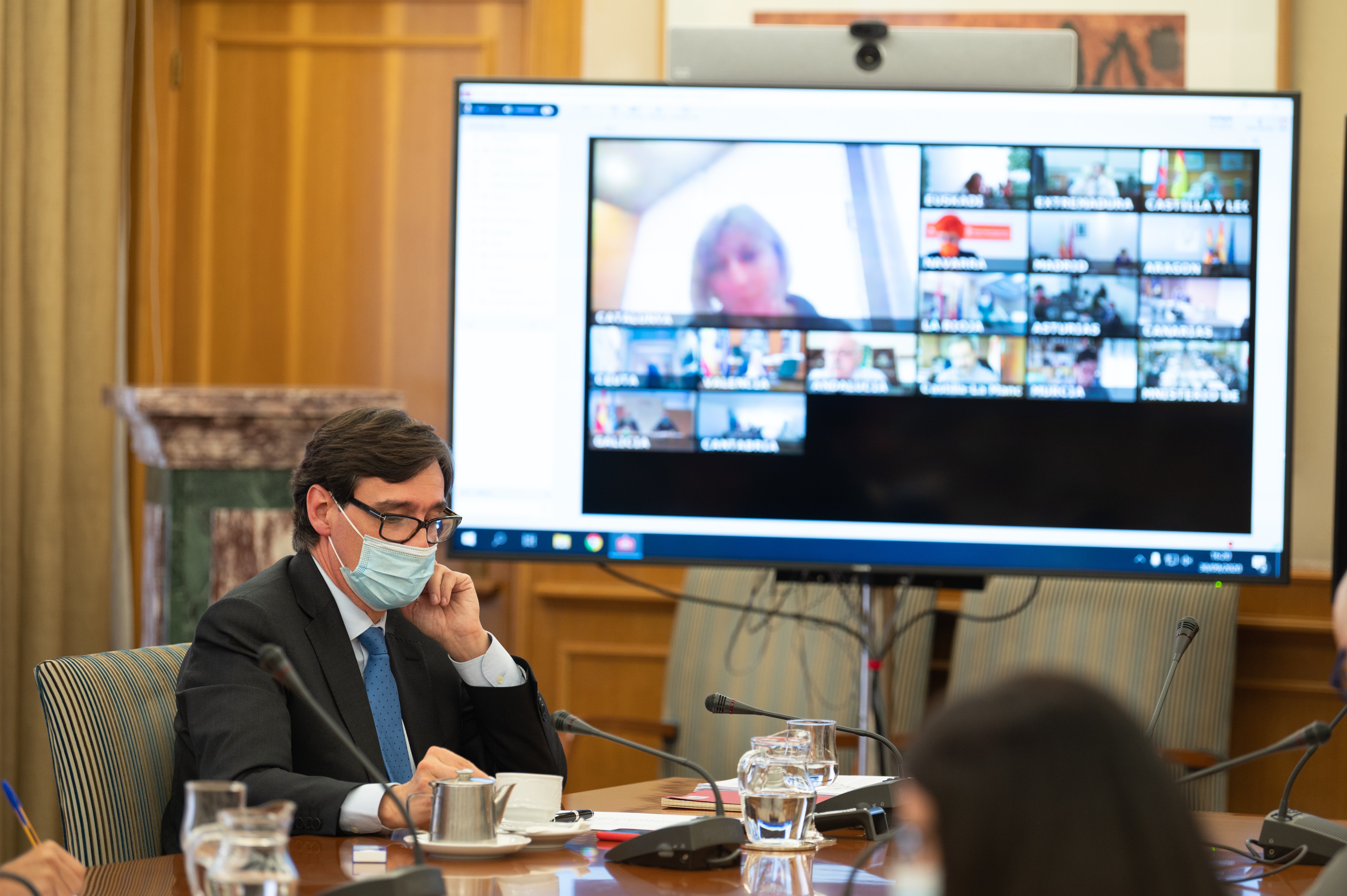It seemed inevitable. Due to both its form and its content, the agreement on coronavirus measures reached on Tuesday between the Spanish health ministry and the Community of Madrid was bound to provoke a reaction from Spain's autonomous communities. In order to reach agreement on imposing stronger lockdown measures in the Spanish capital, the agreement dictated that the same epidemiological criteria would be applied to other large Spanish cities. Objections to the plan were duly voiced this Wednesday afternoon at the meeting between minister Salvador Illa and the regional health leaders, who ended up approving it, but without consensus. Plus, there was a new plot twist to this black comedy: paradoxically, the Madrid regional government itself also ended up opposing it. Five communities voted against it: Catalonia, Andalusia, Galicia and Ceuta, as well as Madrid. Murcia abstained. The other 13 regional votes - those communities governed by the PSOE along with the Basque Country - went in favour.
The ministry's proposal thus scraped through: it needed a two-thirds majority of regions to be binding. Accordingly it will be obligatory for the whole of the Spanish state. And in this way, Salvador Illa will be able to force the Isabel Díaz Ayuso government to lock down the entire city of Madrid. At a press conference from the Moncloa palace, the health minister said that the decision was taken "collegially" with a majority of 70%. He announced that in the coming days it will be published in the government gazette via a ministerial order. The Socialist minister said that he does not envisage any community deciding not to apply it.
In today's meeting of the interterritorial health council, Illa presented the communities with a plan for “coordinated action on public health”. In practical terms, the text approved imposes common criteria on restrictions for mobility, social contacts, maximum occupancies and capacity reinforcements. It applies to all municipalities with population over 100,000, with a cumulative 14-day incidence of more than 500 cases, with a ratio of positive PCR results over 10% of the total tests done and intensive care unit occupancy of over 35% in the autonomous community. At the moment, these three criteria are met by the Spanish capital and nine other municipalities in the Community of Madrid.
Illa has confirmed the ten municipalities affected today in the Community of Madrid. They are the city of Madrid along with Getafe, Fuenlabrada, Alcorcón, Parla, Alcobendas, Alcalá de Henares, Leganés, Móstoles and Torrejón de Ardoz.
Madrid rejects the plan after 24 hours
Although the plan was agreed yesterday in a meeting with the Community of Madrid, today that region ended up voting against it. The government of Isabel Díaz Ayuso rejected the specific conditions. First of all, it called for "objective and clear criteria" that are not limited to the three criteria stated by Illa: on case incidence, positive PCR ratios and ICU occupancy. The Madrid authorities argued that these criteria should be "extended". They also claimed that it should be possible to confine the city of Madrid by districts and not as an entire unit.
According to the document passed today, Madrid will have to apply "minimum" measures. Among these are: the perimeter closure of the affected cities, with the exceptions that are allowed (for work, school, medical visits or care of a person); the setting of maximum gathering sizes of six people; the closure of commercial premises - including bars - at 10pm and with a capacity of 50%; on terraces, the maximum capacity will be 60%.
Illa: "How can Madrid back out of this now?"
The Spanish health minister argued that the Community of Madrid had agreed to this deal yesterday and commented that "no-one understands how they can back out of it now". He stated that the Covid-19 situation in the Spanish capital remains "complex and worrying", today registering the second largest increase in cases during the second wave of coronavirus. And he reiterated his message: "When you go to the doctor, you expect them to tell you the truth." He concluded by paraphrasing Ayuso herself: "The health of Madrid is the health of Spain."
Vergés: "Catalonia acts before these levels are reached"
Meanwhile, Catalan health minister Alba Vergès has stated that Catalonia does not feel that these new restrictions are relevant to its situation, not only because all its cities have their indicators at lower levels but because Catalonia acts before reaching the levels quoted. Catalonia voted against the new measures.
Setting the threshold so high could lead to a feeling among the public that "things are going well" until it is reached. “The perception that things are going well is what can make it worse,” she stressed.
"For weeks now we have been calling for more forceful action in the Community of Madrid, which puts the people of Madrid at risk as well as those beyond. The saddest thing is that Madrid has continued without taking action and without the will to do so," said Vergés, calling on the Community of Madrid to be "responsible" and take strong measures to curb the spread of the pandemic, both inside and outside the region.

